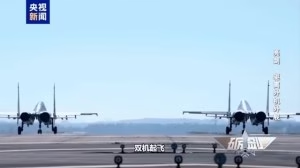Israel’s War Gamble: How the Iran Conflict Shook the World


While the Zionist regime waged a war of aggression against Iran on June 13 and struck Iran’s military, nuclear and residential areas for 12 days, the US stepped in and conducted military attacks on three nuclear sites in Iran’s Natanz, Fordow and Isfahan on June 22.
The Iranian military forces conducted powerful counterattacks immediately after the aggression. The Islamic Revolution Guards Corps Aerospace Force carried out 22 waves of retaliatory missile strikes against the Zionist regime as part of Operation True Promise III that inflicted heavy losses on cities across the occupied territories.
Also, in response to the US attacks, Iranian armed forces launched a wave of missiles at al-Udeid air base in Qatar, the largest American military base in West Asia.
A ceasefire that came into force on June 24 has brought the fighting to a halt.
To explore the dimensions of this aggression, Mehr New Agency contacted Lana Rawandi-Fadai, the Senior Researcher and Head of the Oriental Cultural Center at the Institute of Oriental Studies, Russian Academy of Sciences.
- As an introduction, what factor prompted Israel to initiate an attack against Iran?
I do not see how an objective observer can come to any conclusion other than that the Israeli Prime Minister Netanyahu has abandoned moral, legal, and diplomatic norms and decided to seize neighboring lands and overthrow, relying on the might of the United States, whomever and whatever he finds undesirable in the region. This, of course, includes the Iranian government. It is a case of the Emperor’s New Clothes, and it is astounding to see otherwise civilized countries signing on to it, dressing up naked aggression in the language of “defense” and “necessity.” All this, while crimes against Palestinians are committed on a massive scale. Netanyahu is supported by radicals in his regime and by much of the population of Israel, which has longed for some time to destroy the “Iranian Goals”. The steps they have taken toward this goal have been methodical: a combination of bombing, ground action, and assassinations against Hezbollah and pro-Iranian formations, and even agreeing to, or facilitating, the seizure of power in Syria by Islamists. Having destroyed the “Iranian Goals” at his borders, and at the same time destroying more than 60% of the houses in Gaza and weakening (but not completely destroying) Hamas, the Netanyahu faction decided to move on and overthrow the government in Iran. This involved the invasion of the territory of a sovereign state, the bombing of residential areas of Tehran, during which hundreds of civilians were martyred. The Israeli-US hawks wanted pro-Israeli leadership in power in Iran, led by Reza Shah Pahlavi, whose popularity among Iranians is low. It’s difficult to imagine that human rights and democracy figured much into their calculations, despite the lip service; the main calculus was an installed Iranian government that would allow the darker side of the Israeli state to do it as it pleased with its neighbors. Netanyahu hoped he could accomplish this quickly, but the attempt failed. Now we will see what comes next. What is certain is that the group promoting this latest regime change experiment is unlikely to accept failure this soon.
- How effective do you evaluate the initial reaction of the international community and major powers to the outbreak of war?
Can it be any surprise that the United States, Great Britain and the European Union completely sided with Israel — at least their leaders did; the leaders of the largest EU countries in the person of, for example, Chancellor Friedrich Merz, who openly celebrated that Israel, in its surprise attack and string of political assassinations, was doing the West’s “dirty work” for it. Some EU countries condemned the Israeli attacks, but their voice was drowned out by the “general line,” adhered to by EU elites with the usual fidelity. One can understand concerns about any country’s nuclear program, but such one-sidedness and inflexibility are difficult to equate with serious diplomacy or farsighted foreign policy. Russia and China, as expected, strongly condemned the Israeli aggression. They were joined by Iran’s neighbors, such as Armenia, Turkey, and Pakistan. The newly established Syrian authorities, treading a fine line between their Islamicist roots and anti-Iranianism, remained silent. Some Syrian journalists close to the authorities actually sided with Israel, expressing a desire for as many Israeli strikes on Iran as possible. These same journalists hoped for an Israeli victory in its war against Hezbollah last fall and took pains to refute clear evidence of civilian deaths from Israeli bombings of southern Lebanon. Qatar has taken a nuanced and more constructive position. This country punches diplomatically and has developed good relations with both the West and Iran. The Qatari authorities, along with the Russians and Chinese, contributed to the cessation of hostilities.
- At what stage did the United States enter the war, and what was its objective?
The conventional narrative for many is that Trump joined Israel in attacking Iran’s nuclear facilities on June 22, although Netanyahu’s team was counting on more intensive involvement in the bombing. But the US was involved in the Israeli attack from the very beginning – before the beginning of one might say, because it helped the Israelis plan the operation, planning which some say began ten or more years ago. The narrative in which the US stood to the side until the critical moment is a false one: Israel used US armaments, money, intelligence, and diplomatic cover, as it always does – the countries are, after all, close allies – the very closest of allies, and one would expect nothing different.
- Did this intervention lead to the formation of new alignments among global powers?
It’s too early to say. We still do not even know the extent of the damage in either country. But no, it seems to me that the conflict, at least at this stage – for it is likely not over – has not had a serious impact. Let’s wait for more time to pass and “the dust to settle” (or get stirred up again). The alignments seemed predictable so far: the West always supports Israel and opposes Iran. Russia supports Iran but is hoping for trade opportunities with the US and resolution in Ukraine, and is wary, perhaps, of quarreling with the Trump administration. China would also like to increase trade with the United States, which may have resulted in a tempering of support for Iran. Putin made it absolutely clear that he considers Iran to be the aggrieved party in this conflict, and his strong statement just before the ceasefire may have been a hint that Russia was about to become more involved – one of several indications that the conflict was close to sucking in more belligerents: likely a factor in Trump’s strong push for a ceasefire at that moment.
- Did the U.S. attack on Iran’s nuclear facilities alter the military or political dynamics of the war?
The US attack on nuclear facilities was quite a show, especially for the Western and Israeli public, and in the United States, the media has been in a state of near ecstasy over the difficulty, heroism, and uniqueness of this feat – the long flight, the incredible precision of the bombing, etc. But it seems the feat was not as effective as advertised, although we do not know all the details yet. It may have done very little to change the larger military-political dynamics. America’s technically impressive long-range bombing run may have been little more than a theatrical grand finale that allowed the US and Israel to wrap things up before they got too hot. This also raises the question of what US/Israeli attacks may be coming in the future.
- Ultimately, what factors led both sides to agree to a ceasefire?
Both sides were taking deep hits from the air attacks and ready to rest and lick their wounds. While massive resources were marshalled to shield Israel – US aircraft carriers, British fighter jets, to name only a part – Iranian missiles were still getting through and inflicting a scale of damage Israel has not seen. What’s more, the fighting was expensive, and both Americans and Israelis were running low on missiles. I have heard differing estimates on how much longer Israel could have at least partially defended its skies, but none allow for more than a few weeks more. Iran was also being brutally bombed, but there were no signs it was running critically low on missiles or its ability to launch them. What’s more, in the final days of the conflict, the “fire” seemed poised to spread: the Houthis announced that their previous agreement with the US (not to strike US vessels) was now void; the US base in Qatar was target by an Iranian missile barrage; and the Iranian threat of closing the Straits of Hormuz looked close to becoming a reality. President Trump had no stomach for taking the conflict to that next, dangerous level: he had wanted a quick fix. Also, Russia, China, Qatar, Turkey, Azerbaijan, and other countries pushed diplomatically to stop the conflict. Tel Aviv and Washington may have also been concerned about overly complicating relations with Russia and China, which unambiguously took the Iranian side.
- From the Kremlin’s perspective, was there any specific mediation role played in ending the conflict?
Yes, President Vladimir Putin offered his role as a mediator in resolving the conflict, but Russia was ready to become a mediator only if it was officially asked and was not going to impose itself. The head of the Ministry of Defense, Andrei Belousov, and other Russian officials expressed their support and condolences to Iran in connection with the numerous human losses from the very beginning of the conflict on June 13. Statements by Russian top leaders and diplomats strongly condemning Israel’s aggression may well have cooled Netanyahu’s ardor, as well as the possibility of Russian involvement in the case of escalation. We should remember that Russia has many important development projects in Iran, including those concerning peaceful nuclear facilities.
MNA









